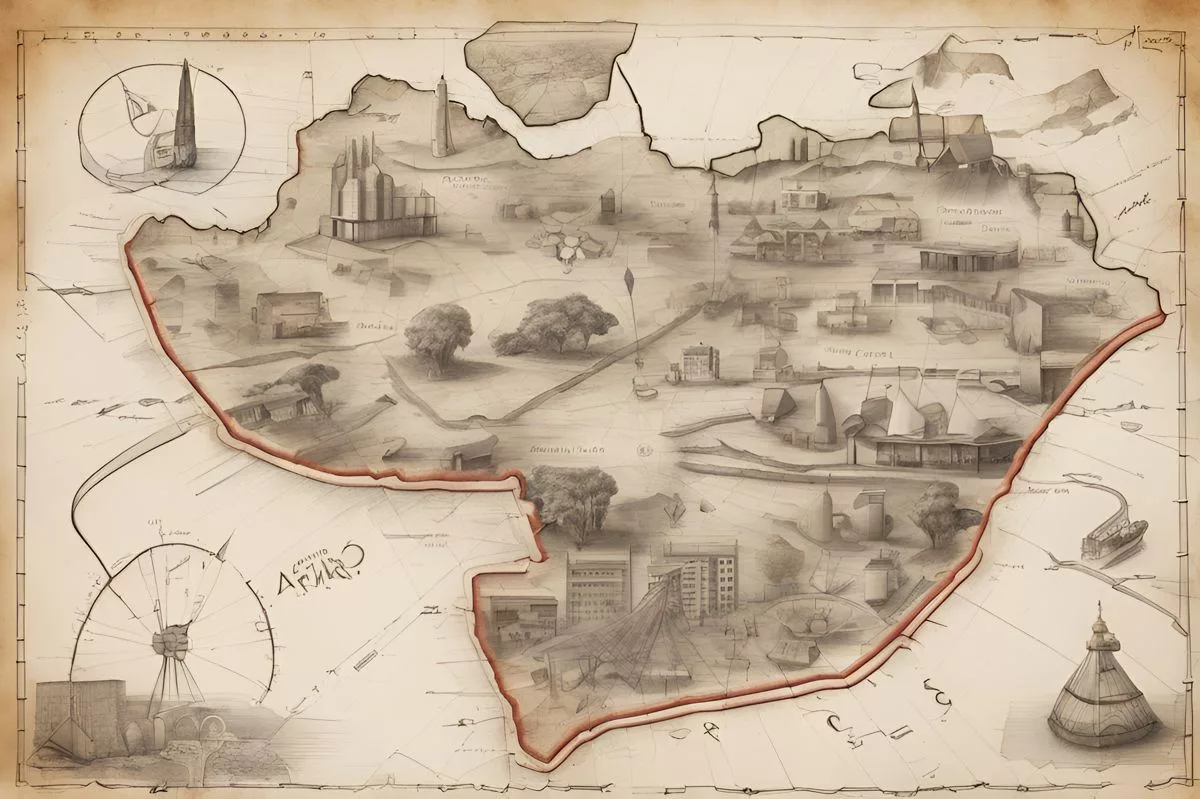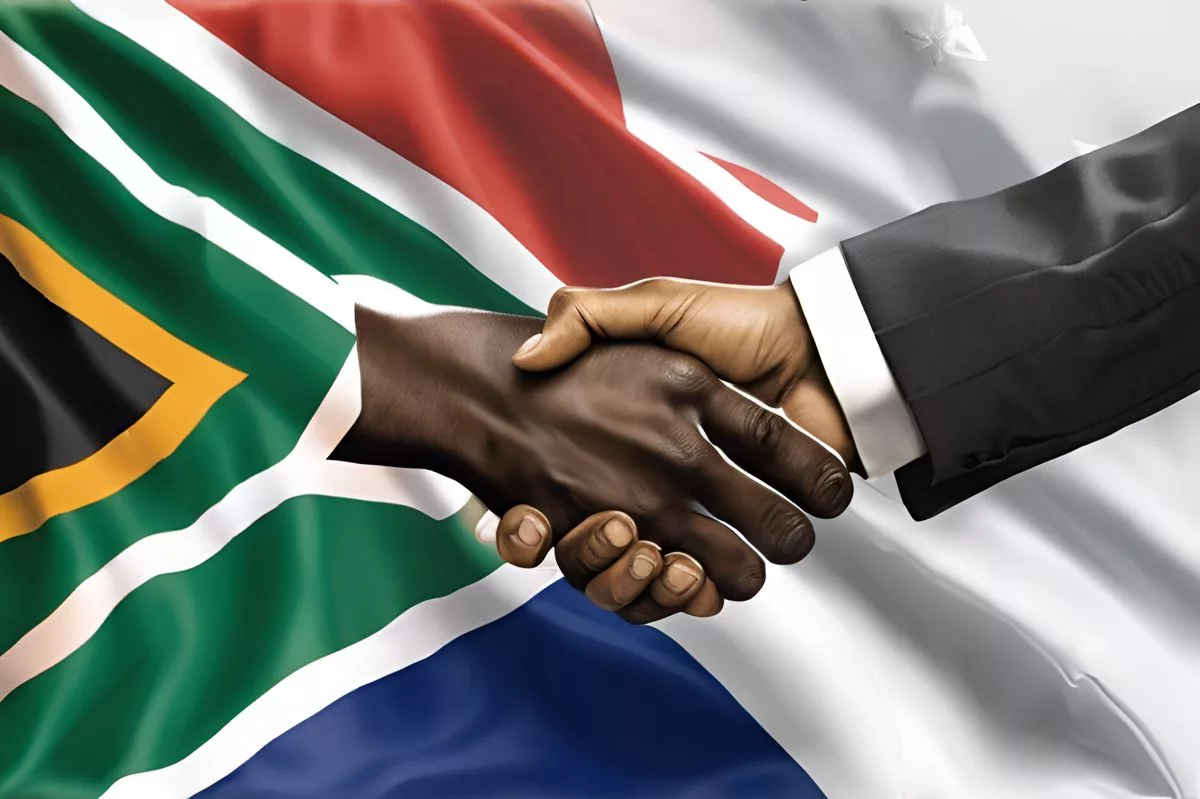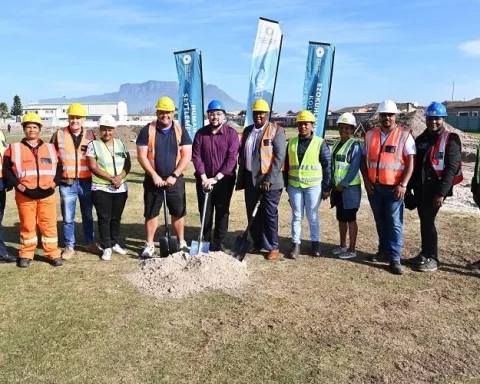South Africa’s economic transformation plan focuses on inclusive growth and infrastructure development to address income disparity, empower marginalized communities, stimulate industrialization, and promote economic diversification. The government is also combating corruption, embracing technological advancements, and solidifying relationships with other African nations and emerging economies. At a recent Black Business Council Awards and Dinner, the Minister in the Presidency and President Cyril Ramaphosa outlined the country’s vision for the future, emphasizing the importance of inclusive growth, infrastructure development, digitalization, and partnerships with other nations. This occasion symbolized South Africa’s commitment to economic empowerment and transformation.
What is the focus of South Africa’s economic transformation plan?
South Africa’s economic transformation plan centers around two main aspects: inclusive growth and infrastructure development. The goal is to redress income disparity and empower marginalized communities while promoting economic diversification and stimulating industrialization. The plan also includes combating corruption, embracing technological advancements, and solidifying relationships with other African nations and emerging economies.
A Landmark Gathering in South Africa’s Heartland
In the pulsating core of South Africa, a significant gathering occurred. Khumbudzo Ntshavheni, the Minister in the Presidency, generously invited President Matamela Cyril Ramaphosa to deliver a speech at the Black Business Council (BBC) Awards and Dinner. This occasion stood as a powerful symbol of the forward-thinking hopes and relentless resolve that forms the backbone of the South African spirit. It was particularly resonant in the context of economic transformation and empowerment.
Reflections on South Africa’s Political Economy
During the event, Minister Ntshavheni reminisced about her prior involvement in the BBC Annual Summit. She recalled her insightful discussions on South Africa’s political economy, its potential trajectory, and the disparities that arose from years of institutionalized discrimination. The stark leftovers of apartheid, evident through economic marginalization and exclusion, were duly recognized. In response to these lingering issues, she iterated the government’s dedication to mitigate poverty, unemployment, and inequality.
Future Prospects of South Africa’s Political Economy
The Minister laid out the forthcoming path for South Africa’s political economy using a binary strategy. The first aspect focused on inclusive growth. The aim was to redress income disparity and empower marginalized communities. South Africa as a nation identified the critical need for economic diversification, recognizing the importance of sectors such as renewable energy, technology, tourism, services, and the green economy.
The second aspect envisioned an infrastructure surge that would stimulate industrialization, facilitate trade, and promote regional integration. This visionary plan also intended to address the historically unequal access to services. It served as a reaffirmation of South Africa’s dedication to alleviate poverty, improve social welfare, and break the cycle of generational poverty.
Embracing Technological Advancement and Tackling Corruption
A substantial part of this revival strategy involved combating corruption, fortifying governance infrastructures, and welcoming digitalization and technological advancements. There was a strong focus on innovation and promoting digital literacy, signaling the significant role the technology sector would play in South Africa’s future economy.
Furthermore, the Minister emphasized the need to solidify relationships with other African nations, deepen alliances with emerging economies, and negotiate mutually beneficial trade agreements. This diplomatic approach was deemed crucial in shaping South Africa’s economic destiny.
The Economic Blueprint Preceding the Census 2022 Results
This roadmap for South Africa’s economic future was designed before the Census 2022 Results were released. These results illuminated the strides the nation had taken over the past three decades, while also drawing attention to the challenges that lay ahead.
As she concluded her address, Minister Ntshavheni ushered President Ramaphosa to the stage, implying that it’s always more impactful to receive updates “straight from the horse’s mouth.” This seamless transition from the Minister to the President reinforced the collaborative ethos at the core of the South African government.
More Than Just an Annual Dinner and Awards Ceremony
This gathering was more than a mere annual dinner or awards ceremony. It was a testament to a nation’s spirit and determination to confront its past, embrace its present, and stride confidently towards a promising future. Central to this transformation was the unshakeable belief in the potential of inclusive growth, economic diversification, and robust governance. This occasion was indeed momentous, encapsulating South Africa’s steadfast commitment to economic empowerment and transformation.
What was the recent event held in South Africa that symbolized the country’s commitment to economic empowerment and transformation?
The recent event was the Black Business Council Awards and Dinner, where the Minister in the Presidency and President Cyril Ramaphosa outlined the country’s vision for the future, emphasizing the importance of inclusive growth, infrastructure development, digitalization, and partnerships with other nations.
What is South Africa’s economic transformation plan?
South Africa’s economic transformation plan centers around two main aspects: inclusive growth and infrastructure development. The goal is to redress income disparity and empower marginalized communities while promoting economic diversification and stimulating industrialization. The plan also includes combating corruption, embracing technological advancements, and solidifying relationships with other African nations and emerging economies.
What were the discussions on South Africa’s political economy during the Black Business Council Awards and Dinner?
The discussions focused on South Africa’s potential trajectory, disparities that arose from years of institutionalized discrimination, and the government’s dedication to mitigate poverty, unemployment, and inequality.
What are the future prospects of South Africa’s political economy?
The future prospects of South Africa’s political economy include inclusive growth to redress income disparity and empower marginalized communities, infrastructure development to stimulate industrialization and promote trade, and embracing technological advancements while solidifying relationships with other African nations and emerging economies.
What role does the technology sector play in South Africa’s future economy?
The technology sector is deemed crucial in shaping South Africa’s economic destiny. There is a strong focus on innovation and promoting digital literacy, signaling the significant role the technology sector would play in South Africa’s future economy.
What was the purpose of the recent gathering in South Africa?
The gathering symbolized South Africa’s steadfast commitment to economic empowerment and transformation. It was more than a mere annual dinner or awards ceremony – it was a testament to a nation’s spirit and determination to confront its past, embrace its present, and stride confidently towards a promising future.












